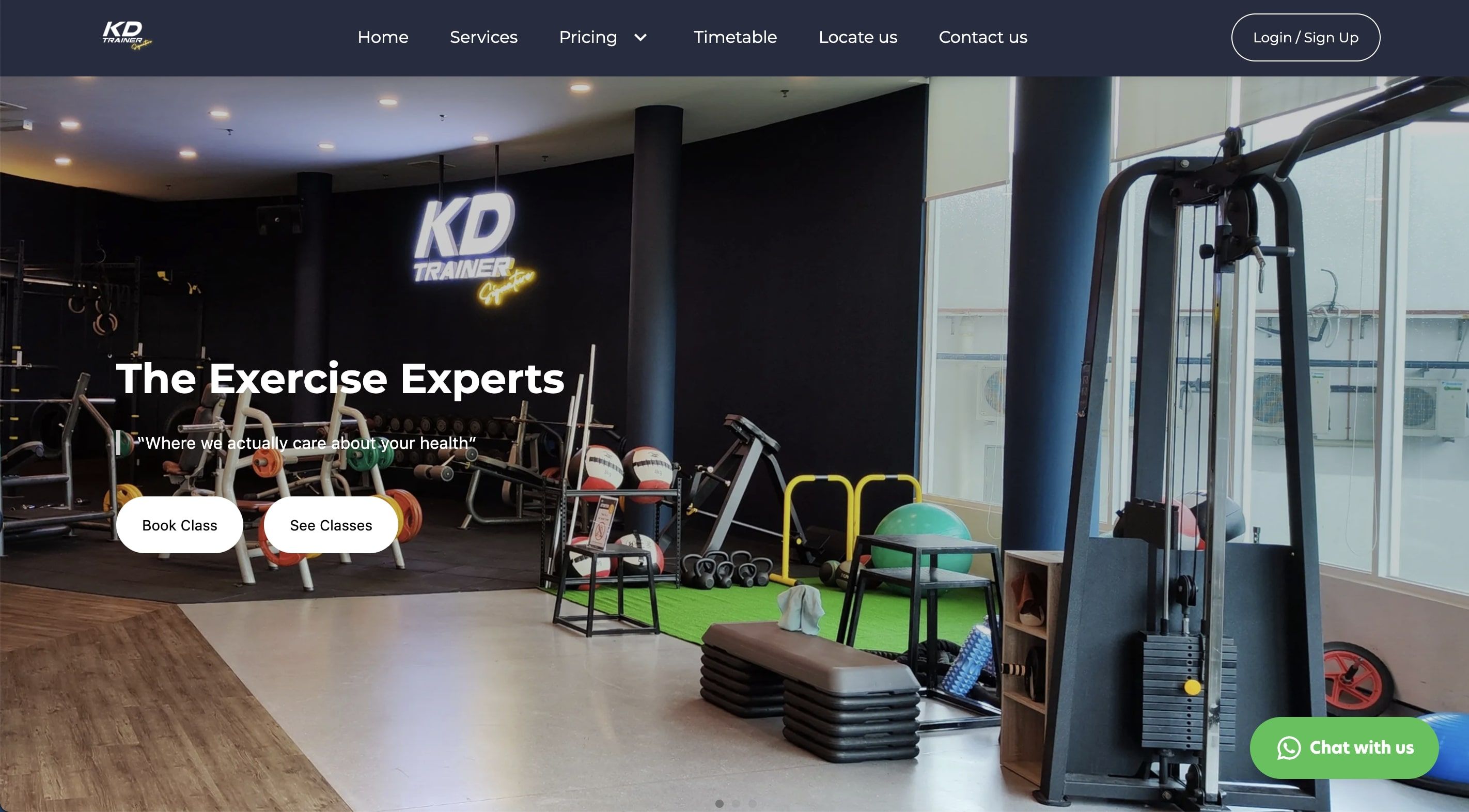SEO for personal trainers: How to optimize your website for more bookings
How personal trainers can take advantage of SEO to improve website performance and expand online visibility.

Source: Pexels
Search Engine Optimization (SEO) is a technique applied to enhance websites to make them easier to find in search engines. SEO began in the mid-1990s with the emergence of the internet, as Yahoo and AltaVista search engines appeared. It involves attempting to achieve a higher position in search engine results through keywords, meta tag creation, and backlink building to gain website popularity.
Subsequently, SEO strategies adapted to the existence of more sophisticated search engines. For example, the Google boom changed the world of SEO for the better. Now, it is essential to focus on keywords and connect the user experience to relevance and content quality.
The need to optimize websites through SEO tactics has drastically increased, owing to our more digitally driven society. More and more people use their laptops and smartphones to search Google for services like personal trainers. Thus, businesses have to ensure their websites pop up in search engine results.
For personal trainers, improving their website's position in search engine results has become a powerful way to increase visibility, attract new clients and beat the competition. Let’s find out how personal trainers can optimize websites for more bookings.
How personal trainers can use SEO
On-Page SEO: Optimizing your website
On-page SEO deals with optimizing a website's content and its structure. A website builder will offer options to edit all of the following, making it easy to optimize your website for the best possible results:
- Title tags and meta descriptions: These outline a web page's content for a search engine and the user. Write them persuasively, ensuring the usage of relevant keywords to boost click rates.
- Header tags (H1, H2, H3): Include header tags in your content to keep it structured and make use of targeted keywords.
- Content optimization: Develop engaging and informative content focusing on relevant fitness and personal training topics. Such content can include blogs, fitness guides, success stories, and more. These will add value to your website.
- Internal linking: Use internal links within your website from one page to another. This helps search engines understand your website's structure and allows users to navigate it effortlessly.
You can use a personal trainer software like Rezerv to build your own branded website. It lets you create custom pages and blog posts, and set up your SEO details like meta titles and descriptions. Plus, you can manage group classes, private sessions, members, packages, memberships, and payments—all in one platform.

Source: KD Trainer's website built with Rezerv
Keyword research
Keyword research is the first step in optimizing your website. Try to identify how potential customers look for personal trainers. Google Keyword Planner, Ahrefs, and SEMrush are examples of tools that can be used to find relevant keywords.
Try to include broad keywords such as 'personal trainer' and 'fitness coach' and narrow keywords such as 'personal trainer for weight loss in (city)' or 'online personal trainer for beginners’. Long-tail keywords are essential because they are precise and contain higher intent.
Optimize for user location or local SEO
As a personal trainer, you can't ignore local SEO. Start by claiming your Google My Business Account and adding information such as the business address, phone number, and working hours. Ask your clients to write reviews and feedback for you. This will greatly improve your chances in local searches.
Moreover, add local keywords to your website and try to be featured on local listing and citation sites. This will make it easier for people nearby to find you, as you appear first in their search results.
Mobile optimization
A mobile-friendly website is essential for SEO and for catching the eye of potential customers. With more and more people searching on their phones, having a responsive site that adjusts to varying screen sizes is a must. Websites that do not optimize for mobile set themselves up for failure because Google ranks mobile-compatible websites higher, so SEO success relies on mobile optimization.
Building backlinks
Reputable backlinks make building an authoritative and trustworthy website easier. Try to acquire backlinks through guest posts, mentions in industry blog features, or partnerships with local businesses. Building reputable backlinks signals trustworthiness to search engines.
Read also: The cost to set up a personal trainer website

Source: Pexels
SEO benefits for personal trainers
Increased visibility and traffic
Enhanced visibility is a significant benefit of SEO optimization for personal trainers. An optimized website means your services will be advertised to the right clients, who can find the website when searching on Google. If you optimize your website correctly, it should be one of the first results people see when they search for things like "personal trainer near me" or "best personal trainer in [your city]".
Organic traffic results in higher website visits and exposure, as opposed to relying on ads. As a personal trainer, you will no longer rely on external advertisements to pull in users.
Less expensive marketing
With paid advertising, you must spend some money for continual visibility; however, SEO is a comparatively cheaper long-term option. SEO does require some upfront investment in time and money, such as paying for an SEO expert, but after sufficient rankings, leads and traffic to your website are free.
Unlike PPC campaigns, SEO does not require paying for every click, allowing for a constant flow of visitors to your business. SEO is an excellent solution for personal trainers, especially new ones, who need practical, cheaper marketing options.
Targeting locally for more customers
For personal trainers, local SEO is very important as a significant part of your client base will be close to you. By optimizing search terms, for example, "personal trainers in [city]" or "fitness coach near me," you increase the chances of showing up in local searches. Claiming and optimizing your Google My Business profile, creating local citations, and including keywords relevant to the area are local SEO strategies that ensure people can find your services.
Furthermore, individual trainers can take advantage of local map listings, which frequently appear in Google results.
Enhanced experience for users
Google uses ranking algorithms that promote sites with the best user experience. For personal trainers, this means ensuring your site is easy to use, fast, and mobile-friendly. When clients come to your site, their experience is seamless and enjoyable, which increases the likelihood that they will spend more time on the site, check out the services offered, and ultimately book a session.
A user-friendly website improves a practitioner's online reputation and earns more trust from the clients.
Why is SEO important for personal trainers?
Focus on active clients
Personal trainers understand that SEO works better than other forms of advertising because it focuses on people looking for something they already want. When a client Googles "personal trainer near me" or "weight loss trainer," that person has a purpose. Unlike advertising, where a business's message is broadcast without targeting, SEO is tailored to connect trainers with clients looking for fitness services.
When you optimize your website with keywords relevant to your target audience, you put yourself in front of potential clients actively searching for personal trainers.
Long-term benefits
Even though paid advertising campaigns can offer short-term returns, SEO continues to pay off. Once your website effectively ranks for the right keywords, you can passively enjoy traffic and inquiries without spending money on ads. This makes SEO a marketing strategy that pays over the long term.
Additionally, when your website's content and structure are fully optimized, it is easier to maintain your rankings.
Building trust and credibility
Achieving trust in the fitness industry is crucial. SEO enables prospective clients to know that they are dealing with an expert by positioning fitness websites as credible resources. Trust is earned through high-quality content such as testimonials, detailed case studies, and blogs, which contribute to building trust both with Google and prospective clients.
When your website ranks for targeted keywords, Google signals to users that it has authoritative content.
Conclusion
In the case of personal trainers, SEO is one of the most effective ways to develop their business while gathering new clients. Increasing your website's visibility, targeting high-intent searches, and optimizing for local SEO will enable you to drive traffic, establish authority, and gain additional bookings with ease.
Read next: How to get personal training clients in 2025

